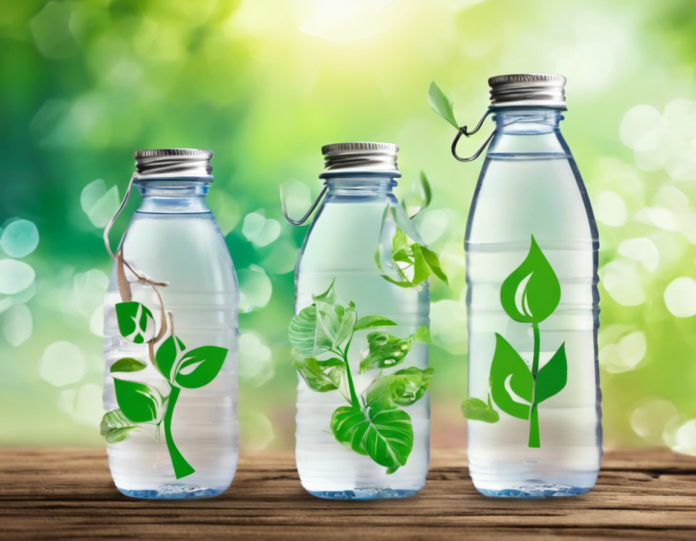Plastic bottles have become an integral part of our daily lives. From carrying water to storing beverages, plastic bottles are convenient and easily accessible. However, reusing plastic water bottles may not be as harmless as it seems. In this blog post, we will explore the various reasons why it is important to avoid reusing plastic water bottles.
Potential Health Risks
One of the primary concerns associated with reusing plastic water bottles is BPA. Bisphenol A, commonly known as BPA, is a chemical compound found in many plastics, including those used for water bottles. Over time, especially with repeated use or exposure to heat, BPA can leach into the water contained in the bottle. BPA is known to mimic estrogen in the body and has been linked to various health issues such as hormonal imbalances, reproductive problems, and even certain types of cancer.
Bacterial Contamination
Another key reason to avoid reusing plastic water bottles is the risk of bacterial contamination. When we use a plastic water bottle multiple times without thorough cleaning, bacteria from our hands, mouth, and the environment can build up inside the bottle. This can lead to the growth of harmful bacteria, putting us at risk of infections and illnesses.
Degradation of Plastic
Plastic water bottles are not designed for long-term use. Each time we refill a plastic bottle, it undergoes wear and tear, leading to degradation of the plastic. As the plastic breaks down, harmful chemicals may be released into the water, posing a risk to our health.
Environmental Impact
The environmental impact of plastic pollution is a growing concern worldwide. By reusing plastic water bottles, we are extending the lifespan of these bottles beyond their intended use, which can contribute to the accumulation of plastic waste. Single-use plastics are already a major contributor to environmental pollution, and reusing them only exacerbates the problem.
Risk of Leaching Other Chemicals
In addition to BPA, plastic water bottles may contain other harmful chemicals that can leach into the water. These chemicals can disrupt the endocrine system, affect hormone levels, and have long-term health implications. By reusing plastic bottles, we increase the likelihood of exposure to these harmful substances.
Alternatives to Reusing Plastic Water Bottles
To reduce the negative impacts associated with reusing plastic water bottles, consider switching to reusable options such as stainless steel or glass bottles. These materials are durable, non-toxic, and environmentally friendly. Investing in a high-quality reusable water bottle not only promotes your health but also helps reduce plastic waste.
Proper Care and Maintenance of Reusable Water Bottles
If you choose to use a reusable water bottle, it is important to practice proper care and maintenance to ensure its longevity and hygiene. Here are some tips to keep your reusable water bottle clean and safe for everyday use:
- Wash your water bottle with hot, soapy water after each use.
- Use a bottle brush to clean hard-to-reach areas and remove any residue.
- Allow the bottle to air dry completely before storing it.
- Avoid using harsh chemicals or abrasive cleaners that may damage the bottle.
- Regularly inspect your water bottle for signs of wear and replace it if necessary.
Frequently Asked Questions (FAQs)
-
Can I safely reuse plastic water bottles multiple times?
It is not recommended to reuse plastic water bottles due to the risk of chemical leaching, bacterial contamination, and degradation of the plastic. -
What types of plastic water bottles are safe for reuse?
BPA-free plastics such as PET (Polyethylene Terephthalate) are considered safer for single-use purposes, but it is still advisable to opt for reusable alternatives like stainless steel or glass. -
How many times can I refill a reusable water bottle before replacing it?
It is best to follow the manufacturer’s guidelines for the lifespan of your reusable water bottle. Regularly inspect the bottle for any signs of damage and replace it if needed. -
Is it safe to wash reusable water bottles in the dishwasher?
While some reusable water bottles are dishwasher-safe, it is recommended to hand wash them with hot, soapy water to maintain their quality and integrity. -
Can I use vinegar or baking soda to clean my reusable water bottle?
Both vinegar and baking soda are natural cleaning agents that can help remove odors and stains from your water bottle. However, be sure to rinse the bottle thoroughly after cleaning to avoid any residual taste.
In conclusion, the decision to avoid reusing plastic water bottles is a conscious choice that prioritizes your health and the environment. By opting for safer, more sustainable alternatives, you can make a positive impact on both your well-being and the planet. Remember, a small change in your daily habits can lead to significant benefits in the long run.





